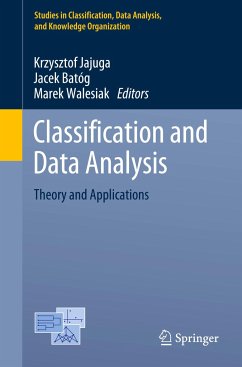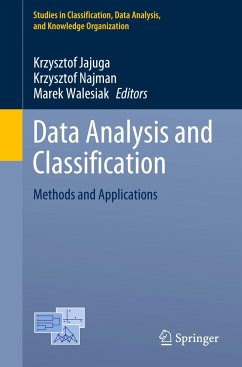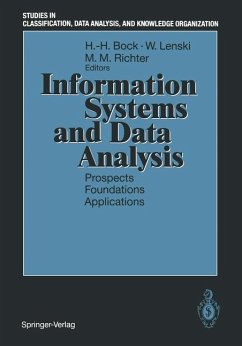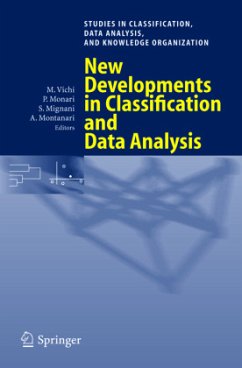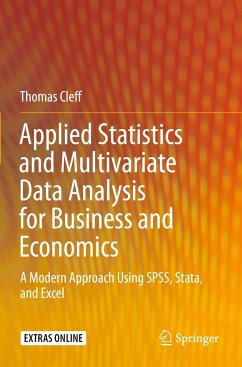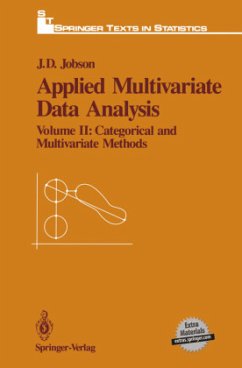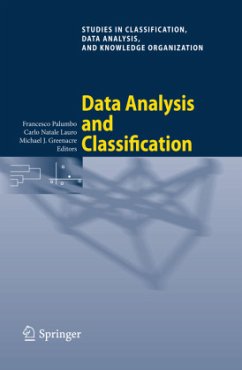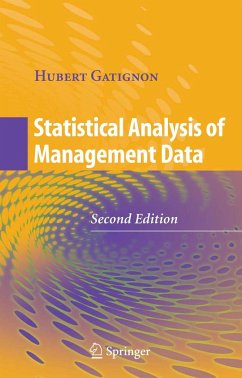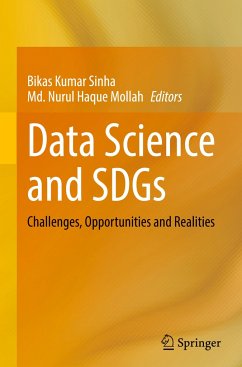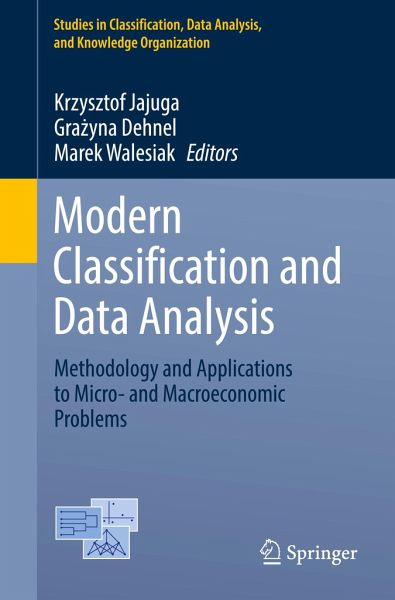
Modern Classification and Data Analysis
Methodology and Applications to Micro- and Macroeconomic Problems
Herausgegeben: Jajuga, Krzysztof; Dehnel, Grazyna; Walesiak, Marek

PAYBACK Punkte
0 °P sammeln!
This volume presents a selection of peer-reviewed papers that address the latest developments in the methodology and applications of data analysis and classification tools to micro- and macroeconomic problems. The contributions were originally presented at the 30th Conference of the Section on Classification and Data Analysis of the Polish Statistical Association, SKAD 2021, held online in Poznan, Poland, September 8-10, 2021.Providing a balance between methodological and empirical studies, and covering a wide range of topics, the book is divided into five parts focusing on methods and applica...
This volume presents a selection of peer-reviewed papers that address the latest developments in the methodology and applications of data analysis and classification tools to micro- and macroeconomic problems. The contributions were originally presented at the 30th Conference of the Section on Classification and Data Analysis of the Polish Statistical Association, SKAD 2021, held online in Poznan, Poland, September 8-10, 2021.
Providing a balance between methodological and empirical studies, and covering a wide range of topics, the book is divided into five parts focusing on methods and applications in finance, economics, social issues and to COVID-19 data. The book is aimed at a wide audience, including researchers at universities and research institutions, PhD students, as well as practitioners, data scientists and employees in public statistical institutions.
Providing a balance between methodological and empirical studies, and covering a wide range of topics, the book is divided into five parts focusing on methods and applications in finance, economics, social issues and to COVID-19 data. The book is aimed at a wide audience, including researchers at universities and research institutions, PhD students, as well as practitioners, data scientists and employees in public statistical institutions.





